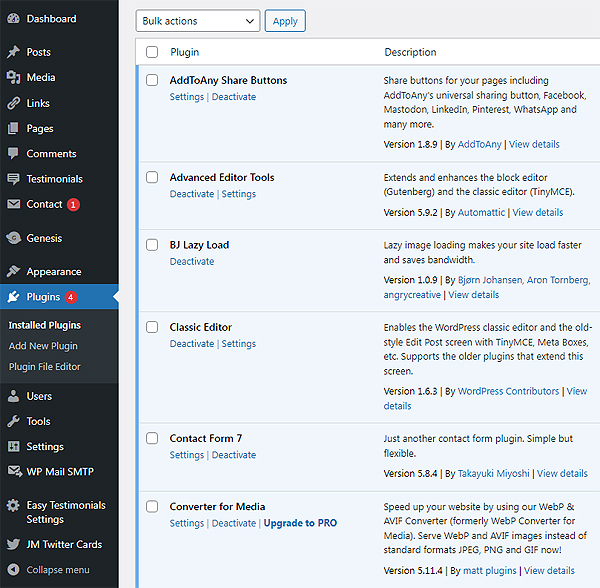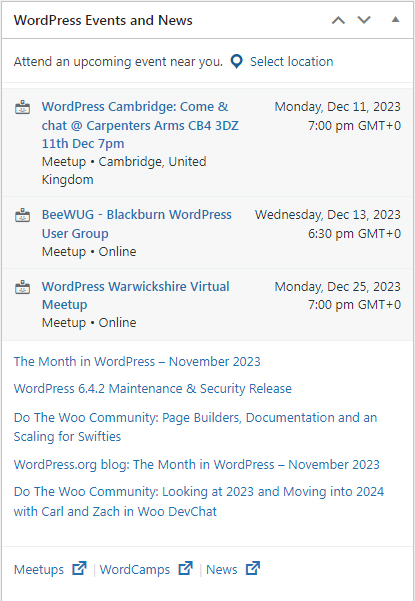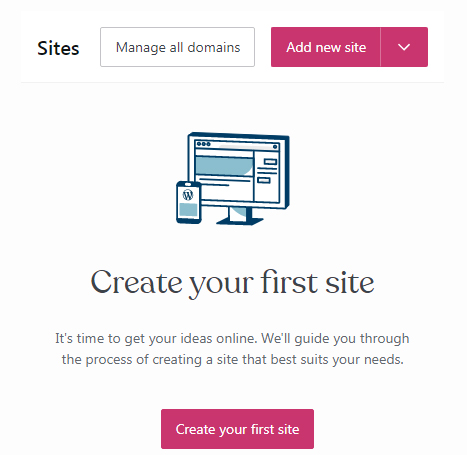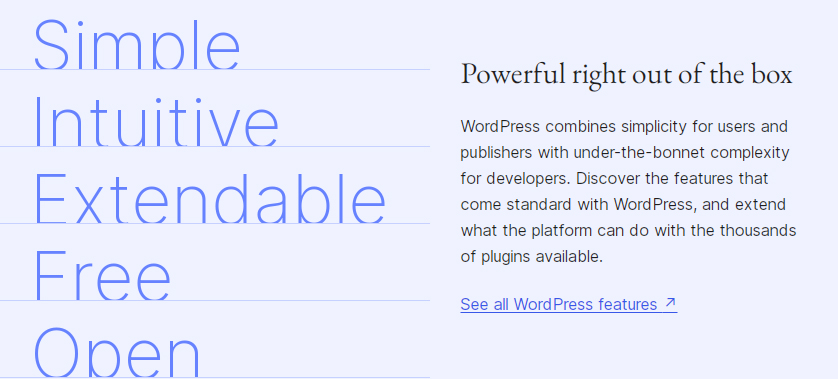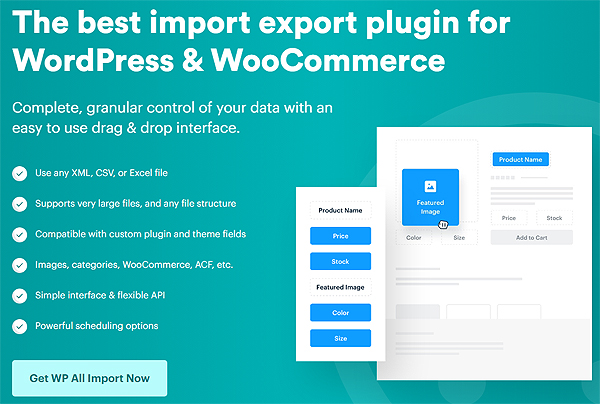Depending on budget and business objectives, you might wonder if there’s any point in having an expensive custom-built website, when WordPress will probably be more than good enough.
Wix, Squarespace, Yola, and the GoDaddy site builder are just some of the platforms used by businesses building their first websites.
Typically, these websites aren’t very good (although the platforms have improved somewhat) and no one in the web business particularly wants to roll up their sleeves to work on what is destined to be rubbish no matter how much tweaking is done.
If you’re going to have someone else build the site for you, they will float several options to suit your needs and budget with an outline of pros and cons of the different approaches. WordPress will likely be one of the suggested options.
When Web People Go AWOL: Contingency and Business Continuity
Quick story: a few years I was tasked with rebuilding a website for a gym in Loscoe, Heanor. The site existed on some antiquated and hard-to-understand software with little to no documentation called Expression Engine.
The original developer didn’t want to be involved and because the business had hit a dead end with this, they were forced to start all over again (I recommended WordPress together with the WooCommerce plugin to sell classes/memberships).
Let’s Discuss Death…
This brings me to a slightly macabre point I always raise when chatting with clients, which is “what is your contingency if the web designer (i.e. me) were, for example, to get run over by a bus and killed?”
It’s important to stop and think about this, and most people do, because it’s a shocking proposition. What would they do?
If me or anyone else is the only person who built your website, and something happens, can someone else reasonably step in to pick up the slack months or years down the line?
WordPress Users Are Everywhere… and That’s Good
WordPress comes highly-recommended as the platform for building of choice for your website. Search Reddit discussion forums to get unfiltered opinions if you haven’t already.
It’s relatively easy to find WordPress specialists to work with you compared to finding someone to solve issues for difficult, out-of-date software, as mentioned a moment ago.
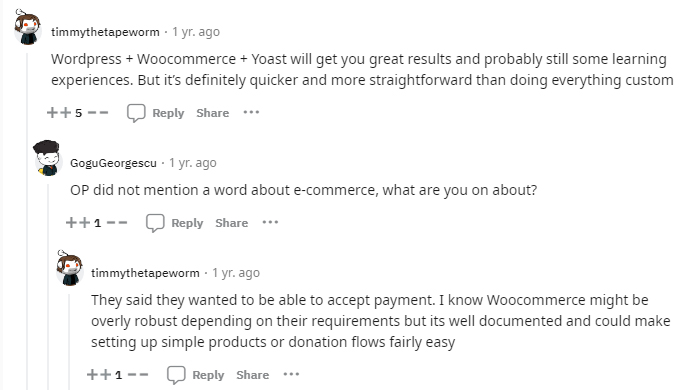
So some research on Reddit to get opinions on what WordPress can and can’t do
Not only has it come on leaps and bounds over the years, but WordPress is basically free (with exceptions for certain themes, frameworks, extensions and plugins) as well as being open source.
Now, if you don’t know what “open source” means, the translation here is that the core software is not proprietary. It is not a walled garden, and as such, developers from all over the world collaborate to consistently advance, improve and refine it.
There’s Tons of Good Free Support
WordPress groups, forums and discussion are present on every social network. Tutorials and guides exist everywhere. Free meetups are in most cities worldwide.
There’s something almost humanitarian about it, with businesses and organisations of all shapes and sizes using it to power their websites. It is genuinely loved.
As of 2023, 810 million (approx 43% of the entire internet) websites are built using WordPress.
There’s Tons of Good Paid Support
While you can have a crack at building the site yourself, you’ll likely run into issues which is the point at which you’ll need to hire someone. Still, the bare bones of the system are absolutely brilliant.
Yes, you could try to build it yourself for free, but there’s a thriving market that exists to assist you. Just make sure whoever you hire is helping you meet business objectives and not just cranking out ineffective pages that look nice.
Hmm. WordPress is Free? How Exactly is it “Free”?
WordPress core software is free. At a basic level, you can build pages with pre-made themes, text, images and more, using content blocks that can be dragged and dropped, although, like with most things, you might want to get away from cookie cutter configurations or templates.
There is always more than meets the eye such as search engine best practices, webpage hierarchy, page load speed optimisation, user experience/interface, online shop payment processing administration and actual business performance etc, etc.
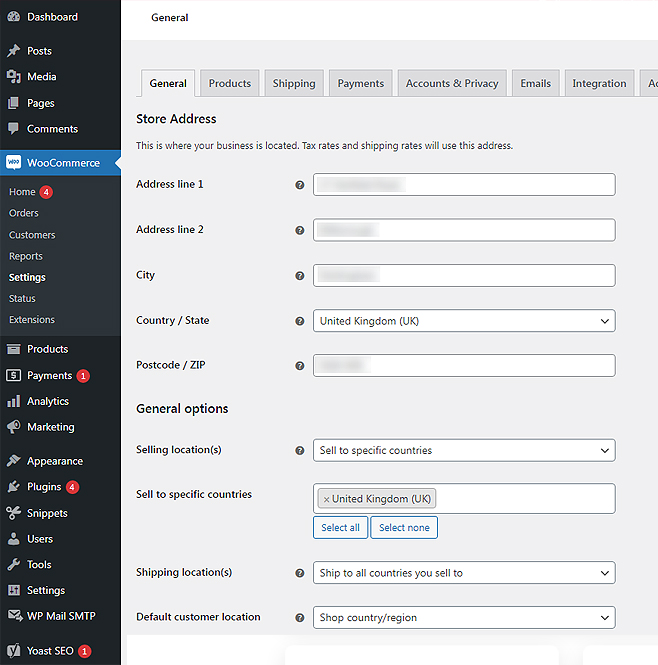
This is the dashboard of an eCommerce store built on WordPress
Anyway, WordPress comes into flavours: WordPress.com and WordPress.org.
WordPress.com Explained
WordPress.com is a good place to start if, for example, you only want to do low-level online blogging, because you can do so without paying a penny.
The hosting and domain (with caveats and limitations, of course) is taken care of. There are tiers of service which start off free with options to do more if you pay a subscription.
There are some nice design themes, but you’ll need to switch to WordPress.org if you want to actually build a proper business website with total control.
WordPress.com will end up being too restrictive and actually more expensive. I just took a look at their “business web hosting” plan.
It’s way more expensive than other web hosting options on the open market, but then, this is aimed at people who can’t be bothered or don’t want to spend time on all that stuff. I do know of a local Erewash Councillor who blogs on WordPress.com, and for someone like that, it’s fine.
WordPress.org Explained
This is the way to go if you’re running a real business with future aspirations. You can mix and match your various services (domain, email, hosting, CDN and caching, payment processors etc) to create your own beast.
The WordPress.org software can be downloaded free and deployed on a web server, which means you (or your chosen expert) are involved with more of the solid construction side of the project, whereas WordPress.com is more like one of those cheaper pop-up tents that people take to music festivals. 🏕️
The self-hosted WordPress.org website would be built in an offline testing sandbox before eventually being published live.

WordPress.org software is downloaded, unpacked and copied to a local or remote server
If you want to move to a different webhost, or change the domain, all that can be done in a fairly straightforward way with WordPress.org, whereas WordPress.com is more of a closed system.
Paid WP Themes, Plugins and Extensions: Some Are Worthwhile
Because of the good will, enthusiasm and support surrounding WordPress, there is also a huge, profitable ecosystem surrounding it (which is where the WordPress.org paid stuff comes in).
There’s only so much that can be achieved with free plugins/extensions, and sometimes these break because WordPress core may have updated and is no longer compatible with whatever any given plugin author had previously created for free but no longer wants to continue to maintain.
You can definitely supe up your website with certain paid plugins and extensions which, in many cases, is money well spent. 👍
Often, such software is needed if you want to stand a chance of achieving particular functionality or getting certain tasks done hassle-free.
I recently bought something called WP All Import for £150 (it’s an add on for the free WooCommerce system) because if I didn’t do this, it would take literally months to add every single (very complex) eCommerce product listing with images, tags, SEO etc. Using the plugin, I can do it en masse via a spreadsheet.
Paid plugins means competition, and competition means the developers are kept on their toes to do their best for those that are paying.
Annual Recurring Paid Plugin Subscriptions Get Pricey
Word of warning: a lot of the good paid plugins are switching to annual subscriptions (they have to keep updating/improving to keep up with WordPress core, so obviously need to be motivated to keep that up long term).
But multiple paid plugin/extensions can amount to a hefty sum, which is why you should hire someone who can study your requirements and make appropriate recommendations.
Does a Small Business Really Need a “Custom” Built Website?
Now, a custom website is something entirely different to anything mentioned so far. Of course, all websites are built according to certain specifications, but we’re using the word “custom” differently here.
A custom website is built proprietary-style, meaning no other site like it exists. This is more the preserve of web aficionados who, perhaps after many years of specialised experience (and might know WordPress inside out) have decided to take things up a notch and build their own system from scratch.
While such skill is admirable, it’s not going to matter to a lot of your customers.
Reasons to Pay for a Elite Custom Website Instead of Using Common Pleb WordPress
There is no doting worldwide open source community to fall back on in these scenarios. With custom coded websites, it’s all down to however many people were involved in the building of it, and only those people know how to maintain or modify it. 👤
If WordPress is comparable to a box of lego with an instruction booklet, a custom website is more akin to smelting and moulding your own plastic bricks. Whether you’re provided with (or would even want) operational documentation/instructions is anyone’s guess.
Reasons to for an Elite Custom Website Instead of Common Pleb WordPress
Because it’s “off the shelf” software, WordPress is, in the eyes of many, clunky, slow and awkward. In my opinion, it is bloody good for what it is. For small businesses and the self employed, this is really more than adequate.
Plenty of online shops turning over millions of pounds run just fine on WordPress – it often comes down to performance fine tuning, correct web hosting, and good business strategies.
A custom-built site will not have plugins the way WordPress does. It will all be built by hand with lots of coding. If you want specific functionality and continual tweaks you’re possibly looking at thousands of pounds per month on a retainer basis.
If someone is proposing to build something “entirely custom” be wary, as it is most likely a waste of everyone’s time and money. What happens if the person or team involved in such a project suddenly quit the business or, God forbid, go missing?
So, unless you’re a massive corporation, such as a supermarket, airline, utility provider or some other entity needing serious digital horsepower, don’t even consider it.
Summary: WordPress is a Good Horse to Back
WordPress has mileage. You can push it quite far performance wise, yet what really matters is if whether it’s suitable in combination with your marketing and sales objectives. To objectively say it’s good or bad is failing to acknowledge context.
If you want a sound byte to hand your hat on, here’s one: businesses doing less that £30 million turnover should do fine with WordPress.
I’ve broken down the essential website costs (domain, hosting etc) as well as labour costs you’d pay to your designer/developer to actually create the website.
Make It Easy for New Blood to Enter the Game…
Always make sure you are given a master record of all logins/passwords necessary in building/maintaining the site (I always make sure to provide all important account passwords/details).
That way, if you need to bring a new person into your business operations (maybe because the previous one went on what was supposed to be a relaxing picnic but were tragically trampled to death by angry cattle), you’ll have everything you need to keep going without missing a beat.
Anyway – long live WordPress!

